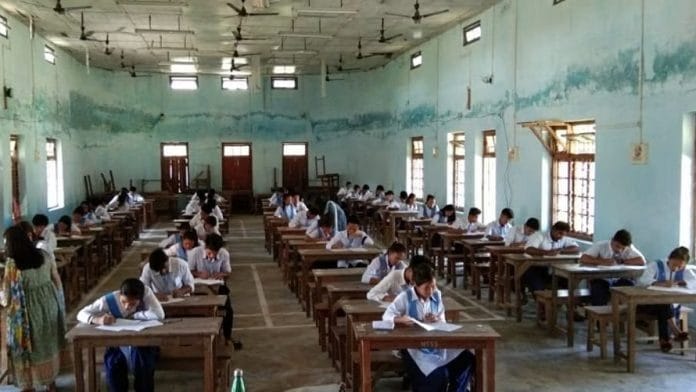New Delhi: To combat the growing crisis of childhood diabetes and obesity, the Central Board of Secondary Education (CBSE) last week directed all affiliated schools to set up ‘sugar boards’—informative displays aimed at raising awareness about the hidden health risks of sugary foods and drinks.
The move comes after the board’s decision last year to allow students with type 1 diabetes to carry insulin pumps and glucometers into examination halls.
In 2023, the National Commission for Protection of Child Rights (NCPCR) had written to CBSE and other educational boards, highlighting that it is the responsibility of schools to provide proper care and necessary facilities to children living with type 1 diabetes. The commission had also directed all state and Union Territory (UTs) boards to implement suitable accommodations for such students, ensuring they receive the support they need during both regular school hours and exams.
In a letter dated 14 May and addressed to principals of all affiliated schools, Dr. Praggya M. Singh, director (academics) at CBSE, emphasised the need to establish ‘sugar boards’ in schools to monitor and reduce sugar consumption among children.
She outlined that these boards should display key information such as the recommended daily sugar intake, sugar content in commonly consumed foods—including junk food and sugary beverages—the health risks linked to excessive sugar consumption, and suggestions for healthier alternatives.
“The initiative aims to educate students on making informed dietary choices and foster long-term health benefits,” the letter said, also urging schools to conduct awareness seminars and workshops on the issue.
The board has asked schools to take up the matter and submit individual reports by 15 July.
Also Read: Words that help us belong—how grassroots libraries are shaping lives, from Assam to Karnataka
Significance of the move
In the letter, CBSE further raised concerns over, what it was, the significant increase in type 2 diabetes among children—a condition once primarily seen in adults. It attributed this alarming trend largely to high sugar intake, often due to the easy availability of sugary snacks, beverages, and processed foods within school environments.
“The excessive consumption of sugar not only increases the risk of diabetes but also contributes to obesity, dental problems, and other metabolic disorders, ultimately impacting children’s long-term health and academic performance,” the board said in the letter.
Citing several scientific studies on the subject, the CBSE said that sugar constitutes 13 percent of daily calorie intake for children aged 4 to 10 years, and 15 percent for those aged 11 to 18 years, substantially exceeding the recommended limit of 5 percent. “The proliferation of sugary snacks, beverages, and processed foods, often readily available in school environments, contributes significantly to this excessive intake,” it said.
In 2020, the Food Safety and Standards Authority of India (FSSAI) prohibited the sale of junk food within a 50-metre radius of school campuses.
According to a 2024 report by the WHO, approximately 35 million children under the age of 5 were overweight. “Once considered a high-income country problem, overweight is on the rise in low- and middle-income countries,” the report said.
Experts, schools welcome the move
Experts welcome the move while calling for effective implementation. Dr. Anoop Misra, chairman, Fortis C-DOC Hospital for Diabetes and Allied Sciences, said it was a welcome first step.
“But for a real and lasting impact, it should be part of a broader health package—regular intake of fruits, vegetables, nuts, and seeds; avoidance of other energy-dense foods and saturated fat-rich oils; zero tolerance for tobacco and alcohol; and at least 60 minutes of vigorous physical activity daily. Firm implementation can go a long way in protecting children’s long-term health,” he told ThePrint.
Devyani Mungali, director, Sanskriti Group of Schools, also stressed the need for a more integrated, long-term health curriculum. “There is a need for an integrated approach that nurtures informed food choices, body literacy, and mental well-being from early years.”
Sudha Acharya, principal of ITL Public School, said that children in the school have type 1 diabetes as early as class 1.
“We have taken the initiative to create awareness & sensitise children to cut down on their sugar content. Our school cafeteria is a millet cafe where wholesome meal is prepared for students. Drinks like sattu chhach, aam panna, lemon & beetroot kanji are available.”
“During recess time teachers monitor food brought by children from home & guide parents on healthy and balanced diet. We have already displayed a sugar board in our school,” she added.
(Edited by Sanya Mathur)
Also Read: Slide in govt school enrolments continued in 2024-25; UP alone witnessed drop of 21.82 lakh






